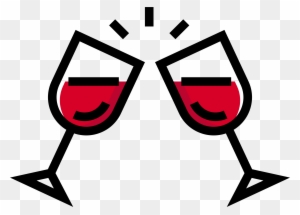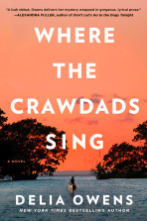If you're spying for the CIA, you have Langley and the United States of America. You might not see them from your street corner or hotel room, but you know they exist, and their power is a comfort. These men had no such thing. They had no country – in early 1948, Israel was a wish, not a fact. If they disappeared, they'd be gone. No one might find them. No one might even look. The future was blank. And still they set out into those treacherous times, alone.
In 2011, journalist and author Matti Friedman began a years-long interview with Isaac Shosan: a now elderly Israeli man with a unique story to tell about the early cloak-and-dagger days of Israeli Intelligence. Adding in information from others' memoirs, newspapers, and military reports, Friedman paints a picture of what life was like for these young men, sent out mostly unprepared and unsupervised into dangerous territory; the result is Spies of No Country. As their mission was to blend in and observe, this isn't a thrilling book about explosions and assassinations (although there is some of that), and as their unit was disbanded before the creation of Mossad, it would be unfair to call this a look at that famed organisation's genesis. What I liked best about Friedman's last book, Pumpkinflowers, were the parts that he processed through his own experience, but since this book isn't about him, that connection felt missing: what results is a stew of facts without a lot of flavour. Still glad to have read it. (Note: I read an ARC and quotes might not be in their final forms.)
This isn't a comprehensive history of the birth of Israel or Israeli intelligence, or even of the unit in question. It centers on a period of twenty pivotal months, from January 1948 through August of the following year; on two Levantine port cities eighty miles apart, Haifa and Beirut; and on four young people drawn from the margins of their society into the center of events. I was looking less for the sweep of history than for its human heart, and found it at these coordinates.Essentially: In the aftermath of WWII, as the British were preparing to dissolve the Mandate for Palestine and the UN declared the area to be the new official homeland for Jewish peoples, surrounding countries became unstable, with Arab attacks on their Jewish neighbours and the Jews responding with counterattacks. In this instability, and even though the British forces were blockading Jewish refugees from entering the country, many Arabic Jews breached the border and joined life in the kibbutzes. In this period before the official declaration of statehood – in a time with no politicians, military, leaders of any sort – some men tried to establish order through unofficial means; and although the Brits had ordered the dissolution of a nascent intelligence service (which they had been training in case the Nazis entered the Middle East), that service's leaders began their own recruitment mission. Scouring the kibbutzes for native Arab-speaking Jews – those born in Syria, Jordan, Yemen – they pulled out the young men deemed most likely to pass as native Muslims and began to train them in the details of Muslim ritual, custom, and idiom. Once trained, they were sent to blend in in the neighbouring countries, and Friedman's telling focuses on the four young men who comprised the Beirut cell; men who posed as Jew-hating refugees, operating a kiosk and taxi service, listening for gossip and local sentiment and transmitting the details through a clandestine radio. Trapped behind hostile lines when Israel's War of Independence erupted, these men had no idea what was happening in the new Israeli state and less chance of getting information about the families they left behind in Aleppo or Damascus. This story is really about people who had been treated as “other” in their Arabic countries of birth, who were trained to erase what is other and non-Arabic about themselves, and who were then returned to a new country that was dismayed by the number of Arabic Jews streaming into their borders in the wake of the war and local reprisals in their countries of birth. When Isaac is eventually extracted, he doesn't know where or who he is:
There was no hero's welcome. There was no welcome at all, just a clerk's voucher for a night at an army hostel if he didn't have anywhere better to sleep. He didn't. He thought someone from the Palmac might be there to hear his stories, but there was no Palmac anymore. He was in the same city he'd left two years before on the bus with the refugees – and in a different city, with new people in the old homes. It was the same country he'd left in the chaos of the war, and a different one, where he'd never been. He was the same person and a different person.There were some themes that I wished Friedman had gone into deeper: the widespread fear of Jews trying to pass as natives in order to destabalise countries (Friedman mentions Moses and the Dreyfus Affair) and the irony of a ragtag cabal accomplishing the ruse. And I wish he had gone further into the idea that Zionism was a European idea (which was essentially communist and atheist) and that these architects of the Jewish homeland were dismayed and disgusted by the influx of Arabic Jews (“Israel is more than one thing. It's a refugee camp for the Jews of Europe. And it's a minority insurrection inside the world of Islam.”) And the natural fallout of this mass migration of the minorities into Israel: the cultural loss to communities with ancient Jewish Quarters now empty of Jews; the fact that it's so much easier to “other” people when you no longer live alongside them. These ideas are all mentioned in passing as integral to understanding modern Israel, and I would have liked more on them.
And yet, as Friedman writes, the big picture wasn't his focus here. He did a good job of describing the events of the twenty months he set out to relate, and his interviews with Isaac (the only member of the “Arab Section” still living) added some humanity to the base facts. I am left wanting more, but I suppose that only proves that I enjoyed what I got: an interesting little piece of a complex picture.












